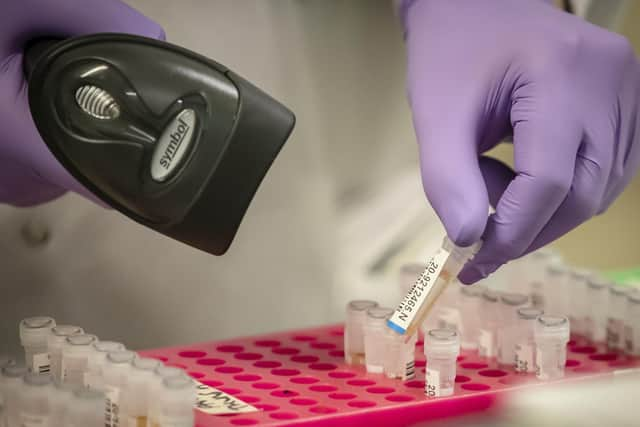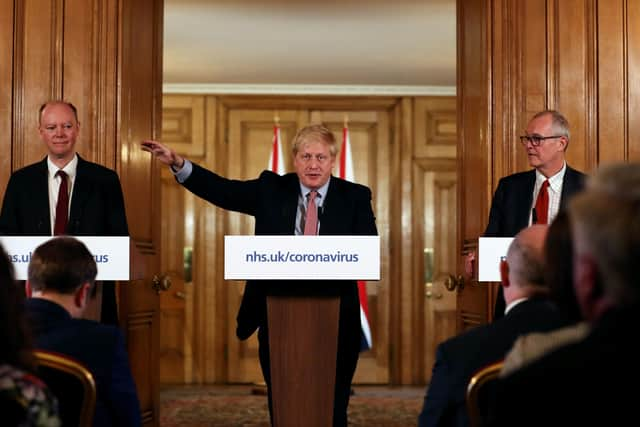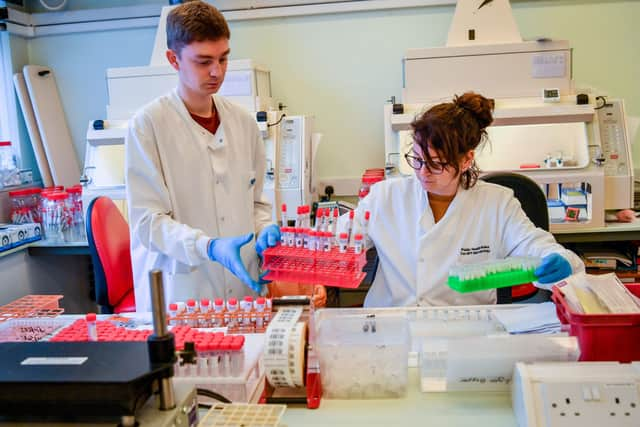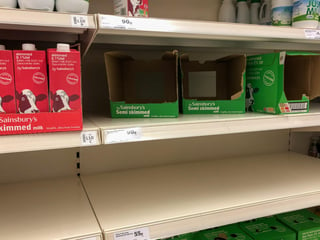Yorkshire common sense and nous will help beat coronavirus – David Blunkett
But given the coronavirus, the Budget and the continuing conflict between parts of the Government and the Civil Service, I fear I will have to postpone my outburst for another four weeks!
So what do the coronavirus, the Budget and Priti Patel’s politics and management style have in common?


Advertisement
Hide AdAdvertisement
Hide AdThe link between the coronavirus and the accusations against Priti Patel – the current Home Secretary – boil down to one simple fact.
The Government, like it or not, and I suspect they do not, is highly dependent on the Civil Service at every level.
They are responsible for ensuring that measures necessary to deal with the virus are put in place as quickly and efficiently as possible, and that the parts of the jigsaw to make this work are in the right place at the right time.
The much-respected new chief medical officer, Chris Whitty, is an expert. Uncomfortably for those with an agenda to ‘shake up’ the Civil Service, he happens also to be a civil servant. This “inconvenient truth” also happens to be true of the chief scientific adviser and those who are dealing with what historically was called Civil Contingencies, but which, when in government, we preferred to call Resilience.


Advertisement
Hide AdAdvertisement
Hide AdWhat do I know? Well, apart from the fact that I was in Cabinet for eight years, as Home Secretary I chaired both the Resilience and Counterterrorism Committees.
After the September 11 attacks in 2001, we had to make some pretty rapid decisions about the security and, therefore, the wellbeing of the nation.
The proportionality and balance between taking further powers, acting to ensure that the policing, security and intelligence services had both the money and the capability to act, and at the same time protecting civil liberties and basic human rights.
The term ‘alert but not alarmed’ was invented in the Home Office – I’m not sure I can claim credit, but I’m sure one of my special advisers could!


Advertisement
Hide AdAdvertisement
Hide AdThen, like now, this is a battle for hearts and minds, and not just the nuts and bolts of rooting out potential danger.
Of course, the emergence of a virus and the long-term prospect of dealing with terrorists intent on taking human life and disrupting our economic and social stability, are very different.
What they have in common, however, is the importance of mobilising the common sense of people, as well as providing them with the necessary and truthful advice on which they can act.
At one point, when there was a very serious and credible terrorist threat to Heathrow, we had to intervene to avoid people being unduly scared – fear that would have led to people withdrawing from normal, day-to-day life and having a dramatic impact on our economy and social wellbeing.


Advertisement
Hide AdAdvertisement
Hide AdSo, at this moment, I have some real empathy with those in government, and specifically Matt Hancock, the Health Secretary, in getting the message right.
Resisting the all-too-familiar ‘something must be done’, and the ‘something’ must be rapidly escalated to make us feel better, is not easy. As I write, I believe the balance has been achieved but my optimism is not born out of medical knowledge. Rather, old-fashioned ‘nous’.
Experience leads me to understand the challenges last Wednesday of Rishi Sunak, MP for Richmond, and the first Chancellor representing a Yorkshire seat since Denis Healey was appointed in 1974. His £12bn package to deal with Covid-19 seems eminently sensible, together with the measures announced by the Bank of England.
However, what in the much-hyped future spending package will benefit Yorkshire remains to be seen. Other, of course, than the new West Yorkshire metro mayor which, as predicted by me, was already in the pipeline when local authority leaders were blocking progress to further devolution.
Advertisement
Hide AdAdvertisement
Hide AdFor what it’s worth, my own view is that we should display what we always pride ourselves on – our British stoicism. It is easy to say but we should just get on with our daily lives.
Tragically, thousands of people die each year of flu. Eighty people a day are diagnosed with Parkinson’s disease in the UK. Many of us suffer, in my case, not very quietly, from recurring chest infections and “man flu”.
Don’t get me wrong, if things get dramatically worse, quite drastic measures will have to be taken to ensure the wellbeing of large parts of the population – and these will go further than those announced at the Prime Minister’s press conference in 10 Downing Street on Thursday teatime.
All those years ago we called the Cabinet Committee ‘Resilience’ for a reason. We need to be resilient, and we also need to learn lessons from the past.
Advertisement
Hide AdAdvertisement
Hide AdThe pictures of people queueing up in the early hours of the morning in order take their money out of the former building society, Northern Rock, had a profound impact on the actions of others in relation to the banking system 12 years ago. What was undoubtedly a problem was accelerated into a ‘crisis’.
The balance between expert evidence and political instinct, between extreme caution and complacency, and the importance of good communication, advice, and, yes, that word again – common sense – will be vital in the months ahead.
We are Yorkshire, so let us set a real example.
David Blunkett is a Labour peer from Sheffield and served as Home Secretary from 2001-04.
Comment Guidelines
National World encourages reader discussion on our stories. User feedback, insights and back-and-forth exchanges add a rich layer of context to reporting. Please review our Community Guidelines before commenting.
